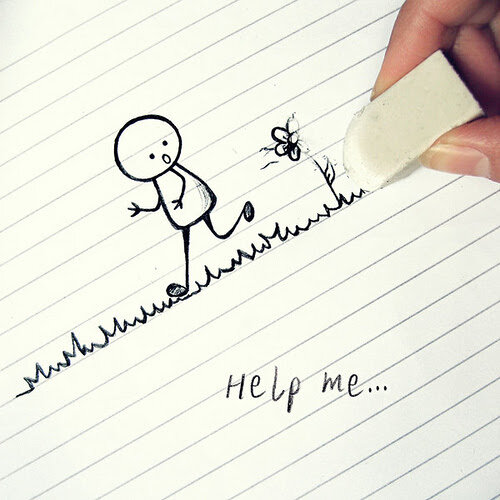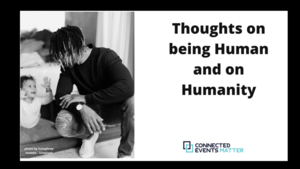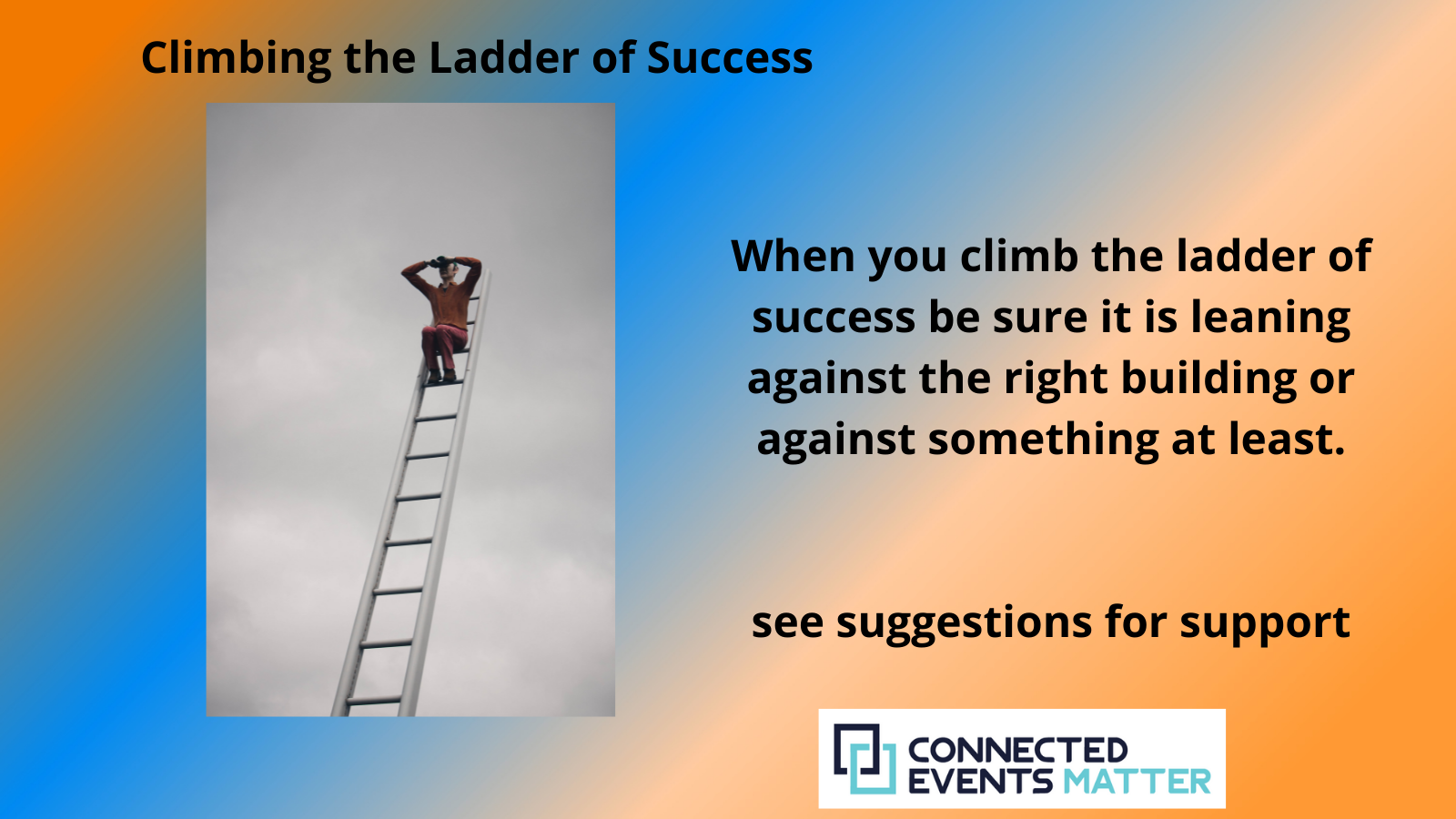Liberal Arts vs's Liberal Politics; Are Liberal Arts Liberal? →
The sword of justice or just a Liberal Arts Major ?
If you were, or are, a liberal arts major does that mean your politics have to be liberal? No, of course not, liberal arts has very little to do with political learnings. It probably still needs to be said that all political learning could benefit from some liberal arts.
Liberal arts refer to academic subjects such as literature, philosophy, and social and physical sciences, as distinct from professional and technical subjects. As far back as Ancient Greece liberal arts subjects were felt necessary to enable a person to take an active part in civic life.
J. Paul Getty, the billionaire from the mid 1900’s, said it well when he said that he could teach a new hire accounting but he couldn’t teach them how to talk to people. He said that because he felt that it was better to hire a collage graduate who had a degree in liberal arts than in business.
This website is liberal arts focused, intended to help get away from looking at daily routine in only technical terms, but instead to consider thoughts and connections to enable further pondering.
The Dean of the Business School at Wake Forest recently said:
“We have become so myopic in solving business problems that we don’t think about those problems from the perspective of other disciplines”.
Boston University’s assistant dean at their school of business said:
"businesses want workers who have the ability to think, the ability to write, the ability to understand the cultural or historical context of whatever business decision they’re making”.
Liberal arts can help you get out of where you are to somewhere new. C.S. Lewis said:
“The good of literature is that we want to become more than ourselves, we want to see with others eyes, to imagine with others imaginations, to feel with others hearts, as well as our own.”
So whether your personally conservative or liberal, the good news is that more liberal arts will help you renew and reinvent yourself.
Don’t Search for Happiness, Search for Connections →
The problem with searching for happiness is that it is hard to define and is a little different for each person searching for it. Our life journey is unique and turns out to mostly be a reflection of our goals. There are a lot of possibilities to find goals that will lead to happiness happiness, but the problem is that happiness itself is only a goal.
Albert Camus said: “You will never be happy if you continue to search for what happiness consists of.
You will never live if you are looking for the meaning of life.” The quote by Camus points out that searching for what happiness consists of does not work. The problem is that what it consists of is different for each person and, to make it more challenging, it is not something that is constant even for the individual who is searching. Emotions can change what was thought to be the definition of happiness in an instant.
The feeling of happiness is abstract yet real. Happiness is defined by Google as “the state of being happy”. Even google can not offer an exact definition but suggests that the answer is the “state"of being happy.
I once heard a social worker say that people would be happier if they “thought less and acted more”. This thought suggests that more meaning is found in what we do than what we think about. Searching for abstract or highly individualized concepts is going to involve a lot of thought and little actual “doing”.
Why is it that people do seem to be happier when they are busy? Well the simple answer is they are not lost in their own thinking and rethinking. A better answer is that everything we do brings new connections, we meet new people, see new places and have new experience. Each of these interactions, if they match up our own self identity and core values, form connections. Our values give us our purpose but if we have no one to share them with the purpose is meaningless.
Humans crave connections and studies have shown that it is key to our well-being and even happiness. A lack of connection leads to a feeling of isolation which is harmful not just to our health but to our happiness. This also explains why searching for happiness just does not work. The effort requires a lot of thinking and we spin our wheels rather than making new connections.
When you consider the idea of thinking less and acting more an important question would be what about listening? Is listening part of thinking or part of acting and doing? The good news is that it is part of both. Listening brings facts and focus to your thinking that still can be measured against your values but what you learn from listening is new facts and perceptions. Searching for an abstract concept with only you own thoughts to determine your conclusions can just take you in circles which of course makes you unhappy.
Listening is also part of acting and doing because it becomes part of the direction for your actions. If you are to make new connections, then listening will be critical. If new connections are measured against your own values that can happen but listening is a must.
The advice to think less and act more is a good start but listening more and seeking new connections might be a better goal.
The Human Condition is Reflected in Choices →
We expand our own understanding by finding out more about the human experiences of others. To do so we need to know about the characteristics, key events and all that compose the essentials of their lives: their struggles, conclusions, emotional responses, aspirations, and even their deaths.
Tony Hillerman wrote about the Navajo people and their traditions. He said “we are all connected” It can make a real difference to us to understand the lives of others, even a thousand others so perhaps the Human Condition is to be connected with other humans.
Authors are the gatekeepers to the lives of others and they provide us with the pathway to this knowledge. Harold Bloom, a well-known professor of literature at Yale, has written many books about interesting authors. His book "Shakespeare, The Invention of the Human” claims that Shakespeare's vocabulary of 22,000 words is so infinite that it proves he knew pretty much everything there is to know about humankind. That means, according to Bloom, that he “invented the human”, or at least a more complete definition of humanness.
In an interview published in 1995, Bloom reflected on the great authors of the Western world, stating: “We must read and study Shakespeare, Dante, Chaucer, Cervantes and the Bible, at least the King James Bible.” He said of these authors that “they provide an intellectual, I dare say, a spiritual value which has nothing to do with organized religion or the history of institutional belief” They tell us things we couldn’t possibly know without them, they reform and make our minds stronger. They make us more vital."
Bloom found more about our humanness from the authors themselves rather than from the stories and writings.
Shakespeare’s quotes resonate with our lives today. I like these quotes among so many good ones.
There is nothing good or bad, only thinking makes it so. - Hamlet
Hell is empty and the devils are here. - William Shakespeare
Though this be madness yet there is method in it. - William Shakespeare
The meaning of life is much more than our own personal daily experiences and can include much from those other lives that we read about. For example we learned things from Hyenseo Lee who told to us in her book, “The Girl with Seven Names, Escape from North Korea”, that I am glad I can have some awareness of without having to have had the personal experience myself. Much comes to us in the nonfiction accounts of other people.
Even fiction brings us insight into our humanness. The suspense and twisting plots of fiction writer Lee Child’s in his Jack Reacher series takes us places we would never go and into situation we would never find ourselves in. We find excitement, empathy and emotional experience in fiction. Literary critics often label a piece of writing as literature - and not pulp fiction - if it tries to describe the "human condition.
Poetry can challenge the status quo in our lives and by doing so improve the human condition of all people. An example of this is in the work of May Angelou who fought for equality and for humanity writing about the plights and triumphs of a marginalized people.
The real meaning of our lives is the sum total of our own individual experience and what we have learned.
Human Condition Categories
Existentialist Concepts | Personal lives | Philosophy of life | Humans | Human Choices
Is the poem "If", by Rudyard Kipling Motivational or just Stoic Advice? →
Rudyard Kipling wrote the poem “If” in 1895 when he was 31 years old. He had one son, John Kipling, who was born in 1897. It is believed that when he wrote this poem he was intending to help his son understand life and human nature.
John Kipling went to war in France and died on Sept 27, 1915 in the Battle of Loos. His father, who had used his contacts to obtain an officer's commission for him, and then when he was killed, spent much of his later life searching for the boy he called Jack, who had died without his father knowing where he had been buried.
The advice to his son suggests a motivational focus on getting on with life and finding out about the world. The poem suggests meeting life with a stoic attitude which suggests that unhappiness was caused by trying to control events that we have little say over with and doing so with a calm indifference to external circumstances.
To answer the question as to whether this poem is motivational or just stoic leads to the additional question as to whether it is realistic? It doesn’t seem like having this poem from his father to refer to was much of a help for John Kipling. Maybe it motivated him to go to war. Maybe it deceived him concerning the real world that he would face, but something was obviously missing.
Perhaps one answer to the question is that common sense was missing in this formula for life. Virtue is assumed to be sufficient for happiness, but that does not guarantee the resilience to recover from failure.
The poem does offer an idealistic outlook that many have found deep connection with in this poem. Poetry can serve more than one purpose and perhaps for some, we the reader can enjoy the poem and find our purposes in it.
This Poem inspired my own book:
Embrace Life’s Randomness: Breathe in the Amazing
Don't Look Back: Live a positive life by knowing where your feet are pointed →
Never look back trying to continue to be successful after doing something with a good result. You have to know where you are going. You will be taken off course if you are trying to concentrate on where you have been.
Pay attention and know where your feet are pointed. Concentrate on where you want to go.
Do we Really Believe that All Life Matters? →
Recently I saw a article in the HUFFPOST titled "Animals Have As Much Right To Live As Human Beings". The title caught my interest. I have often posted pictures of animals, birds, and even bugs with the caption that "All Life Matters". I saw a post the other day where, above a picture of a unique animal, someone had said that it had as much of a right to its life as humans do.
I was fascinated with the impact that the Wolf's * reintroduction into Yellowstone had on the environment and on other animals that were already there. The result of this reintroduction clearly shows that all animal life is connected and suggests that all life is also connected.
All life does indeed need to be respected and in doing so it does make you feel like your "in tune" and doing the right thing.
What about all life? Do we really believe that all life deserves the chance to live the life they were given and are they entitled to that? What about human life? Are those born in the darkest poorest country just as deserving as those born in such favorable circumstances as in the richer more successful countries? Is the difference just the luck of the draw.
Is it consistent to feel so sad when we see Elephants slaughtered and then just assume that young children who lost their parents in war, and are begging on the streets, are just dealing with their own circumstances of chance in their birth location? If we believe that "All Life Matters", then we ought to mean it.
I wish, as I ponder this, that I had a great solution to present. Getting governments to make a difference might be a solution? Even though the solution isn't obvious; the least we can do is decide that all humans deserve a quality life.
*see review American Wolf, A True Story Of Survival And Obsession In The West by Nate Blakeslee
A Life Story is the narrative of who we are →
We have a choice in putting together the narrative of who we are, and who we become. We can pick which of the events we connect with, what we conclude about them, and then weave and reweave them into our story. As my story changes with the retelling, I find that it changes me. I become different because of how I see the story.
Each time we tell our life story we choose the events that connect. We do just that putting together the narrative of who we are in our own life story.
The narrative includes our experiences and those we have known. A reader lives a thousand lives before he dies, and all those lives have influence on us.
A poem by an unknown author suggests that, "Some people come into our lives for a reason, some for a season, and some for a lifetime.” Some feel God sends the people that are needed. Others who may come bring challenges and darkness
Good People still outnumber Bad People →
Good People still outnumber Bad People
Read moreSmiles Matter: They open doors for you and get you an audience →
Smiles Matter: They open doors & get you an audience.
by Brent M. Jones
Your smile can change the perception of you that others have. When you smile, you appear more attractive and confident to other people because the physical act of smiling affects the part of the brain that regulates your emotions.
Endorphins are released when you smile and that brings your own stress levels down and reduces negative feelings.
It is a win win approach. Those that you meet with will feel better and you are also less likely to feel anxious & you will do a better job in an interview or even a sales call.
Careful Attention to the Smallest Details Matter in finding focus →
In both writing and in life the details focus the story and add clarity. Small details are not just small parts of the story but focus what is important about the story. The readers senses are awakened by the details. The importance of sounds, tastes, and what is seen become a part of the meaning of the story with details.
An example of this can be understood by watching or writing about “ants”. It is informative to explain that ants can teach us a lot and offer ways they do it: working together, paying attention to small details, examples of work ethic and balancing items.
The story takes on more focus when we attempt to describe the ants picking up a drop of water off a wire and then balancing it on it’s head. The delicate size and skills of the ant become clear because of our understanding of what a drop of water is.
Focus on what is most important in your life, not the daily news! →
Focus on what is important and what matters. Sometimes the daily news is just consuming. Too hot to handle. A diversion and a distraction.
Consuming the news can activate the sympathetic nervous system, which causes your body to release stress hormones like cortisol and adrenaline. Then, when a crisis is happening, and we are experiencing this stress response more frequently.
According to the Centers for Disease Control,(CDC), the COVID-19 outbreak is proving to be stressful for most people. During an infectious disease outbreak, the CDC says stress can include changes in sleep or eating patterns, worsening of mental health conditions, fear and worry about your health and the health of loved ones, and difficulty concentrating.
Don't get burnt up or burned out. Go to work on what is important in your own life.
Your Good and Bad Habits can both make you predictable. →
Even animals have habits but whether they are good or bad may be in the eye of the beholder.
A squirrel goes through the winter finding his way to food each day, over and over again, using the same little trail. The path taken follows the edge of a field, along a fence line, under the brush that is growing there, where the squirrel has cover from predators and onlookers. It crosses a small break in the land where water drains from one side of the fence to the other at times and it is where it jumps, without cover, from a rock on one side to the rock on the other side flying momentarily through the air.
A hawk watches for several days from above and notices that the squirrel takes the trail at the same time each morning. Even with brush covering the trail the hawk can see movement but at the small break he sees that the squirrel is exposed as he jumps through the air.
Days pass and the squirrel’s habits do not change and the hawk continues to watch. One day the hawk is ready watching the movement under the brush and has planned the moment to drops from the sky arriving at the small break in the trail just in time to catch the squirrel in his mouth in midair as he leaps from the rock.
Daily routines are filled with good and bad habits that are repeated over and over. They keeps you busy but it can be used against you. Stop and look up and around is one lesson. Another lesson is be aware of who is watching your habits.
What is different about today. Don’t let habits obscure needed actions.
Is it really Excellence or is it Pride? →
Why do we strive to excel? Is it for our "self-image" or is it to give thanks for our abilities and to help others? In our search for excellence, perfection and accomplishment we can become trapped.
C.S. Lewis said "Pride gets no pleasure out of having something, only out of having more of it than the next man.... It is the comparison that makes you proud: the pleasure of being above the rest. Once the element of competition is gone, pride is gone.”
https://www.linkedin.com/in/brent-m-jones/
Values Matter and Create Your Thoughts →
Values Matter and Create Your Thoughts: Because your thoughts spring from your values. It seems clear that your values are your destiny.
5 cornerstone Values
Integrity, accountability, diligence, perseverance, and, discipline
Thoughts on being Human and on Humanity →
Desmond Tutu said: My humanity is bound up in yours, for we can only be human together. If this is true it leads to the question of “how is that the case? Does it mean the quality and condition of being human for me is bound up somehow with you? Maybe it does, but then the quality and conditions of all who live are not the same.
However we each don’t have to be the same and yet still our humanity is bound up in each other because we can only be human together. We are different in order to realize our need of one another. Our differences create and amplfy our need to be together.
None of us comes into the world fully formed. We would not know how to think, or walk, or speak, or behave as human beings unless we learned it from other human beings.
Maybe the issue is just an awareness. Humanity happens when we care enough to want to understand how others are doing.
What about fantasy? Does one persons look at fantasy find common expression with others? Maybe the feelings and thoughts, that fantasy provokes, are similar. Maybe they are actually different, but just need to be shared?
Does pondering what might be missing in our thinking open doors to connections? Can we ponder what we have had no experience with?
More questions than answers here.
Lean against something if your going to climb a ladder →
By Brent M. Jones
When you climb the ladder of success be sure it is leaning against the right building or against something at least.
Good options would be: building blocks for success, strong values, effective processes, people, mentors, customer relationships and past successes but place your ladder something solid, like a wall.
One of the common denominators to achieving success is discipline. Self-discipline is like a muscle. The more you train it, the stronger you become.
To reach the top of the ladder we will need to discipline our thoughts, conquer our emotions and train our mind to stay focused.
How we react is more important that what happened (Now More Than Ever) →
Life is 10% what happens to you and 90% how you react to it
You are wholly responsible for your own reactions. If you're angry and you start shouting, you've made that choice. If you say something cruel in the heat of the moment, you made that choice. If you get defensive when someone criticises you, you've made that choice. If what happens to you is bad and you find the good then, of course, you did that.
The Direction We Choose Matters, Choose Wisely →
Your focus determines your reality. Ignore the noise and misdirection. Take an inventory of what really matters and concentrate on that direction.
Memory Quilts connect us with our past →
The memory of my Mother’s Cedar Chest goes back as far as I can remember. It was always referred to as a Cedar Chest not a Hope Chest and the things she kept in were various items that she wanted to remember.
The chest contained memories of her 57 years of marriage, but I really didn’t pay any attention to what was in the chest until several years after I was married and had moved away. Inside she had put old clothes, shirts, baby clothes, drapery, ties, doilies, some jewelry and even some flowers pressed between cardboard. Most of the clothing were things I had worn growing up, rather than my younger brother and sister, suggesting she didn’t stay as focused on this collection as the years went by.
I didn’t really understand what a Memory Quilt was when I decided to take most of the cloth items and have the cut into pieces that could be sowed together. An older neighbor and good friend, Ann Reese was experienced in making quilts and the process of sewing many small pieces of fabric together to create a design for a quilt top. I took the patchwork top to my Sister in Law, Anna Marie, and she did the quilting sewing together of the three layers that make up a quilt - the top, the central wadding, and the backing.
Things that are nostalgic often are connected to missing someone or something and they evoke powerful memories because we absorbed the emotions of the event that they items are connect too. We carry the feelings of the emotion with us and each time we look at certain items we find those feelings.
The finished quilt brings back many memories and is its own piece of Family History. Being able to remember many of original items the quilt speaks to me.
The best life story sometimes doesn’t speak words.



























